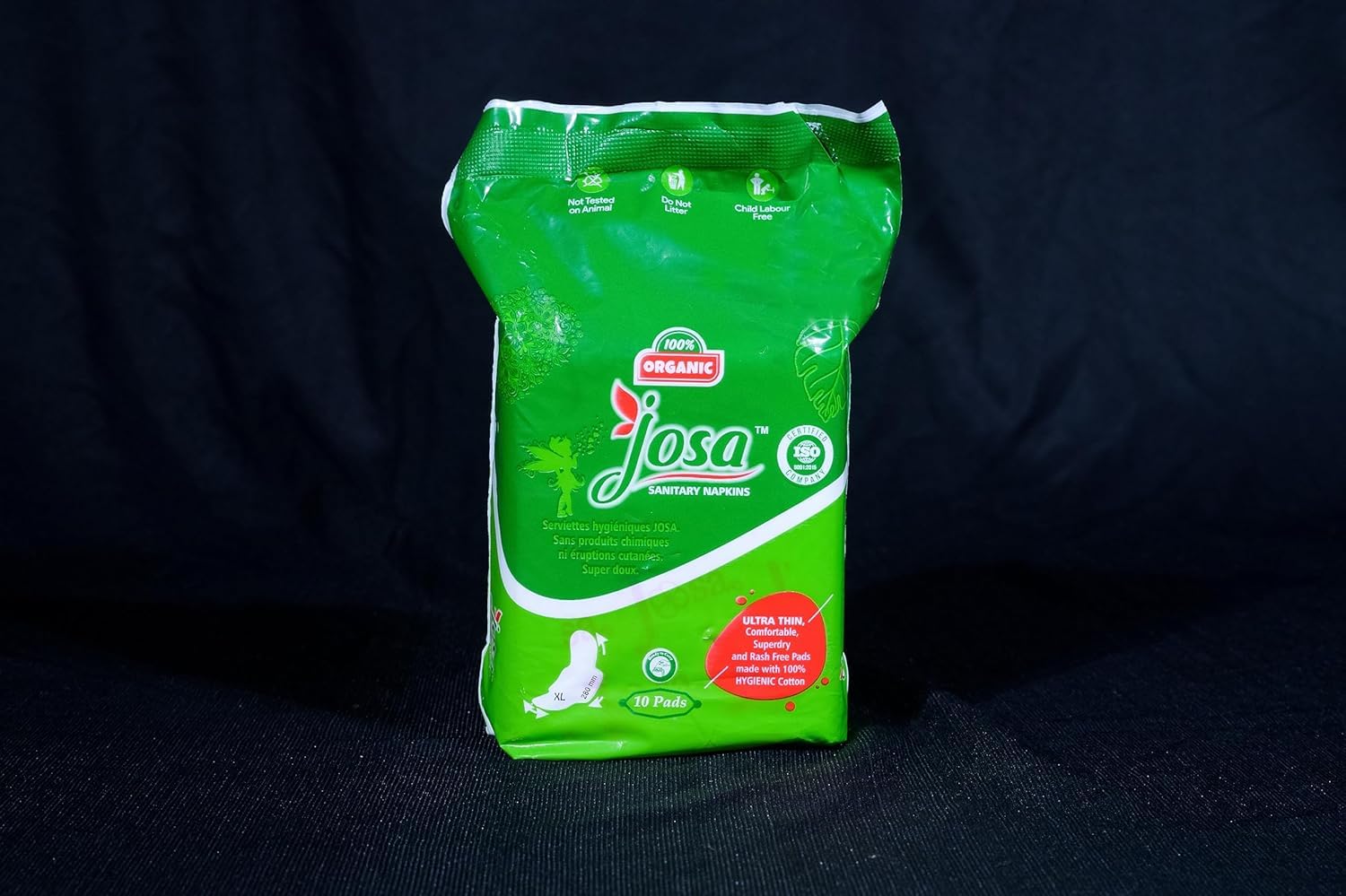Periods can be a real drag, especially when you're constantly worried about leaks and feel like you're bleeding out of a waterfall. If heavy flow is ruining your day, let's talk about what's going on, how to regain control, and the best sanitary pads for heavy bleeding!
Women's health specialist Dr. Linda Yang says it all comes down to losing over 80 milliliters (about a third of a cup) of blood during your menstrual cycle.
But, let's be honest, quantifying blood loss during your period isn't exactly on anyone's priority list. Thus, how can you determine whether you're working with a heavy flow? The following are some crucial indicators:
Leak City
You discover that you must change your pads or tampons every hour or two due to soaking through them.
Seven Days and Counting
Your menstruation just won't stop! When it lasts longer than a week, you experience fatigue and frustration.
Have menstrual blood with clots larger than a quarter
Another flag would be if you feel your period disrupts your day-to-day activities,” said Dr. Yang, “where you have days home from work or school, or if it’s regularly staining your clothing or bedsheets.
Signs and symptoms
Among the signs of severe menstrual bleeding are:
1) leaking through a tampon or sanitary pad every hour for a few hours at a time.
2) requiring two sanitary pads to regulate your monthly flow.
3) waking up late at night to change tampons or sanitary pads.
4) prolonged bleeding—more than a week.
5) passing larger-than-quarter-sized blood clots.
6) reducing everyday activities because of excessive menstrual flow.
7) experiencing weariness, exhaustion, or dyspnea due to blood loss.

Heavy periods can be caused by several things. These are a few of the most typical reasons:
Hormonal imbalances: Excessive thickening of the uterine lining can result from fluctuations in progesterone and estrogen levels, which can intensify bleeding.
Uterine Fibroids: These uterine growths, which are not malignant, can lead to heavy and protracted menstruation.
Endometriosis: This condition causes excessive bleeding and pain during the menstrual cycle when endometrial tissue grows outside the uterus.
Adenomyosis: This condition, like endometriosis, is characterized by the growth of endometrial tissue inside the uterine wall, which may result in severe bleeding.
Intrauterine Device (IUD): During the first few months of use, there is a possibility that the use of an IUD will result in heavier periods.
The profound impact of Heavy Periods on daily life is evident.
Weakness (59%), discomfort associated with bleeding (48%), disturbances throughout the night (34%), and disrupted social, professional, athletic, or sexual lives (30%) are typical symptoms (here, here, and here).
Anaemia or iron shortage that result can potentially be quite crippling (see here). Crucially, compared to those who are better informed, Australians who lack information and control over their menstrual health typically suffer from a higher negative impact on their quality of life (here).
Make sure you change your tampon or sanitary pad at regular intervals. The recommended time frame is every 3 to 4 hours for a tampon and every 4 to 5 hours for a pad. You may need to use more tampons or pads on the heavier days of your period.
Hygiene is very important when changing tampons and pads. Always wash your hands well before and after using a new tampon or pad.
Sleeping It’s best to use pads rather than tampons overnight. If you sleep with a tampon in place, it should be changed immediately before you go to bed and first thing in the morning.
Keeping a tampon in place for longer than the recommended time frame increases your risk of toxic shock syndrome (TSS), which is a rare but dangerous illness that can be caused by bacteria in the vagina.

Drink plenty of clear fluids every day (water is best) unless a doctor has told you that this is unhealthy for you.
Include red meat and chicken in your diet. These foods contain iron and can help prevent iron deficiency.
Pads for Heavy Periods: A Necessity It's important for women who have heavy periods to select the appropriate sanitary pad. Sanitary pads with the highest levels of comfort, absorbency, and leak protection are ideal for heavy flow. They ought to be able to manage the strong flow and offer solace during this trying period.

To meet different needs and tastes, Josa’s Organic Biodegradable Pads has a wide selection of heavy-flow pads. Their commitment to research and development guarantees outstanding comfort and reliable performance. Josa Pads are the best option when it comes to properly and successfully handling heavy periods.
Discover the distinction with Josa Pads. Check out their selection of heavy-flow pads now to experience a newfound level of comfort and confidence throughout your menstruation.


